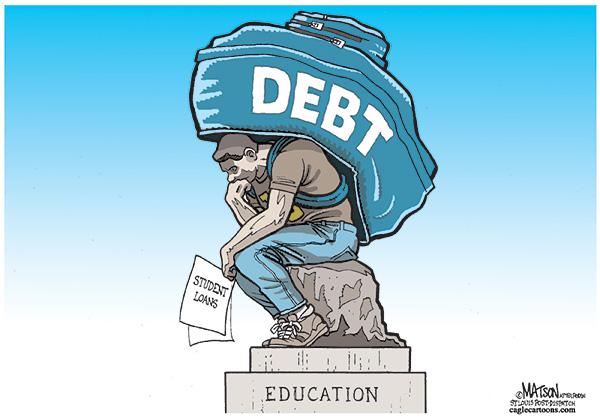 Schoolwork is work; it is the source of an enormous amount of new knowledge, wealth and social creativity, supposedly benefiting ‘society’ but in reality providing a source of capital accumulation (extracting profit from labour). Being asked to pay for education is in fact paying twice, once with work, and once with money (or debt). In both these actions students’ relationships to capital are reproduced: they are simultaneously producer and consumer, and are therefore doubly bound. To view the work that students do on their courses as without value is a mistake; they are producing something very valuable to their society: themselves as more productive workers and more predictable consumers.
Schoolwork is work; it is the source of an enormous amount of new knowledge, wealth and social creativity, supposedly benefiting ‘society’ but in reality providing a source of capital accumulation (extracting profit from labour). Being asked to pay for education is in fact paying twice, once with work, and once with money (or debt). In both these actions students’ relationships to capital are reproduced: they are simultaneously producer and consumer, and are therefore doubly bound. To view the work that students do on their courses as without value is a mistake; they are producing something very valuable to their society: themselves as more productive workers and more predictable consumers.Students compete for multiple jobs (often precariously) to repay or attempt to avoid loans. Debt, or a body of indebted students, has a downwardly competitive impact on labour markets, wage demands, and labour rights.
Skills accreditation – HND, Degree, etc – is posed as indispensable for obtaining employment. The decision to take on debt cannot be treated as an individual choice. Paying for one’s education is a toll imposed on workers in exchange for the possibility, not even the certainty, of employment. In this sense, it is a collective wage-cut. It shifts the costs of socially necessary education on to the workers themselves, forcing workers to take on more of the cost of their reproduction (their ability to reproduce themselves as ‘wage-workers’), at a time when tremendous transnational competition exists in the labour market.
Debt enforces ‘work-discipline’: representing a way of mortgaging many workers’ and their families’ futures, constraining decisions of which jobs and wages they can seek, and undermining their ability to resist exploitation and/or to fight for better conditions.
Student debt is part of a growing debt market. Debt in general is constructed to humiliate and isolate the debtor yet is clearly a struggle that involves subjects other than students. Accepting student debt is, for all those who work, accepting defeat.
Student debt, like all debt, acts as a mechanism of social control. Debt is a form of education that trains the indentured.








Sem comentários:
Enviar um comentário